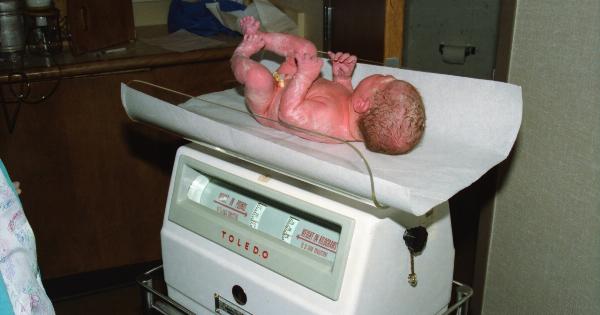Every milestone in a baby’s life is a cause for celebration, and the emergence of their first teeth is no exception. But while teething marks an important developmental stage, it can also be a challenging time for both babies and their parents.
Understanding the signs of teething and what they mean can help alleviate any discomfort and create a smoother transition for everyone involved.
What is Teething?
Teething refers to the process of a baby’s primary teeth breaking through their gums and becoming visible. Although it typically begins around six months of age, some infants may start teething as early as three months or as late as one year.
The first teeth to emerge are usually the lower front teeth, followed by the upper front teeth, and then the molars, canines, and incisors.
Teething can be a painful experience for babies as their tooth pushes through the sensitive gum tissue. It’s important for parents to recognize the signs of teething to provide appropriate care and comfort.
Signs of Teething
While every baby is unique and may exhibit different symptoms during teething, there are several common signs to watch out for:.
1. Irritability and Fussiness
One of the most noticeable signs of teething is increased irritability and fussiness. Babies may become more easily agitated and cry more frequently due to the discomfort caused by their teeth pushing through their gums.
2. Excessive Drooling
Teething stimulates the production of saliva, resulting in excessive drooling. You may notice your baby constantly drooling or needing to wear a bib more frequently than usual.
3. Gnawing and Chewing
Babies seek relief through gnawing and chewing during teething. They may chew on their fingers, toys, or whatever they can get their hands on to alleviate the pressure in their gums.
4. Swollen Gums
As the teeth exert pressure on the gums, they may become red, swollen, and sensitive to touch. Your baby’s gums may appear more prominent, and you might notice small white areas where the tooth is about to emerge.
5. Sleep Disturbances
The discomfort from teething can disrupt your baby’s sleep patterns, leading to more frequent waking or trouble falling asleep. Providing extra comfort and soothing techniques can help your baby get the rest they need during this time.
6. Changes in Eating Habits
Teething can affect a baby’s appetite and eating habits. They may refuse to breastfeed or bottle-feed due to the discomfort caused by sucking. Offering cold foods or teething toys can help soothe their gums before feeding.
7. Low-Grade Fever
Some babies may experience a slight increase in body temperature while teething.
However, if the fever exceeds 100.4°F (38°C) or is accompanied by other concerning symptoms, it’s essential to consult a healthcare professional to rule out any other underlying causes.
8. Ear Pulling
Teething pain can sometimes radiate to the ears, leading to babies pulling or tugging at their ears. Although this can be a sign of teething, it’s also wise to rule out the possibility of an ear infection if the symptom persists or worsens.
9. Changes in Bowel Movements
Teething can temporarily disrupt a baby’s digestive system, potentially causing softer stools or even mild diarrhea. However, severe or prolonged diarrhea should be brought to the attention of a healthcare professional.
10. Increased Need for Comfort
During teething, babies seek additional comfort to help alleviate their discomfort. They may want to be held more often, seek extra cuddles, or want to suck on a pacifier for soothing relief.
Providing Relief for Teething Babies
As a parent, there are several strategies you can employ to provide relief to your teething baby:.
1. Gentle Gum Massage
Using a clean finger or a damp gauze pad, gently massage your baby’s gums to help alleviate discomfort and provide a distraction from the teething pain.
2. Chilled Teething Rings or Toys
Teething rings or toys that have been chilled in the refrigerator can offer soothing relief by numbing the gums. Avoid freezing teething toys, as extreme cold can be harmful to a baby’s delicate gums.
3. Cold, Wet Washcloth
Dampen a clean washcloth with cold water and let your baby chew on it to reduce gum inflammation and provide cooling relief.
4. Teething Biscuits
Once your baby starts solids, offering teething biscuits can help soothe their gums while providing a tasty snack. Make sure to choose biscuits specifically designed for teething babies to ensure safety and appropriate texture.
5. Pain Relief Medication
If your baby is experiencing severe discomfort, you may consider consulting with their pediatrician about using pain relief medication specifically formulated for infants. Always follow the dosage instructions provided by a healthcare professional.
Remember that teething is a natural process and may cause temporary discomfort. However, if your baby experiences prolonged or severe symptoms, it’s important to consult a healthcare professional to rule out any other potential issues.




























